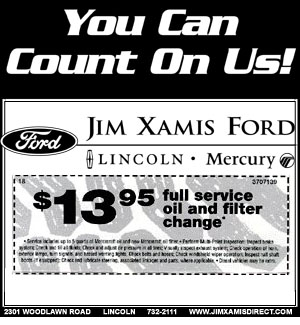|
The future of publishing?
[MAY
17, 2000]
The
invention of paper made an incredible impact on the world. Prior to
paper, most writing was done on animal hides (lambs and sheep).
These materials, vellum and parchment, were too expensive, too heavy
and too bulky to allow for lengthy manuscripts, and too difficult to
handle to give rise to what we currently know as books, newspapers
and magazines. With the invention of the printing press came the
discovery of the Chinese principles of papermaking, and voila,
widespread publishing became possible. The world since has had this
ongoing romance with the printed word.
|
|
Technology
continues to explore alternative ways to do everything. The advent
of the computer, and the onset of the internet has given rise to a
whole new generation of publishing called e-publications. E-books,
e-zines, and e-news(papers) are popping up everywhere. The internet
is replete with volumes of books on the web (check out www.gutenberg.net), electronic magazines covering every different
human interest, and major newspapers are all experimenting with
electronic publishing.
Why
this current trend toward electronic publishing when the world at
large is in love with the printed word on paper?

Three
reasons have emerged:
First,
we realize the need to conserve natural resources and preserve the
environment. Last year the United States produced 100 million tons
of paper – a record production year. According to projections from
the American Forest and Paper Associations, production this year
will top that of last year. Each time we read a newspaper printed on
paper, we are more and more convicted of the fact that we are
consuming and disposing of a resource that is quickly being
swallowed up. Prior to the advent of e-publishing, we had nothing to
replace the printed word on paper.

Second,
distribution of the written word on the internet is perfect and is
economically more practical than the printed word on paper. The
written word can travel across continents, under oceans, and even
into space at the speed of the electron, and at a fraction of a
fraction of the cost of distributing the printed word on paper. It
doesn’t weigh anything, can be composed at a fraction of the cost
and in much less time, and can be sent and received in a timely
fashion.
Third,
the internet has spawned an entirely new economy. This economy seems
to provide news and the published word free to the reader, charging
the entire cost of publication to the advertiser. The word
"FREE" has become synonymous with the word
"Internet." And people seem to like free.
In
mid-March, according to an article in the June 2000 issue of Yahoo
Internet Life (published on paper, of course), Stephen King,
arguably the world’s most popular writer, published and
distributed a novelette called "Riding the Bullet" on the
internet for free. The result was that within the first 24 hours
over 400,000 people downloaded the text, and at the height of the
rush, the traffic was so great that it crashed many servers,
preventing untold thousands from partaking in this groundbreaking
event.

The
success of "Riding the Bullet" signaled to many that the
world was ready for e-publishing and ready for the non-printed word.
(To
top of second column)
|

While
the computer seems to be perfect for the process of writing the
news, and the internet seem to be perfect for the distribution of
the news, the printed-word-on-paper hasn’t vanished. It seems that
while people like to publish stuff online, they don’t (yet) like
to read stuff online. Online publishers like their readers to keep
their articles short and punchy because readers don’t finish
reading articles more than three typewritten pages in length on the
web. A recent Xerox study said that three out of four e-mail users
print out every message that is longer than half a page. Web editors
have reported that links at the top of web pages are clicked more
often than links at the bottom of web pages (seeming to indicate
that people are not reading to the bottom of the page). And most
computer users report that by the end of the day their eyes feel
like bouncing ping-pong balls from looking at the computer screen.
Users report that they want to sit down comfortably in an armchair
and read a paper newspaper, or a book or a poem. And then there is
the dilemma of lugging a computer into the bathroom for reading, or
into bed at night to bring up your favorite volumes.
The
answer, it seems, may be in the development of new technology which
weds the ease of publication and distribution via the computer and
internet with a simulation of the romance and portability of the
printed-word-on paper. Companies are racing ahead to develop
electronic paper which will have the look and feel of ordinary
paper, but will use new technology to temporarily display published
images (e-ink on e-paper). The result may be that a reader will
download the text into a plastic-like medium, to be displayed, read
and then reused by the reader (currently under development by
Xerox). Others report that the reader will hold a tube and draw a
page out of that tube. The page will then be displayed, read and
then will be drawn back into the tube like a window shade, to
receive new text and images.

In
the near future, books may be electronically published in what looks
and feels like a real book, with a leather or canvas cover and what
feel like real paper pages. The difference would be that there would
be advanced circuitry in the cover and the spine of the book which
would electronically display the text and pictures on the pages.
When you are done with the e-book, slip in a new memory-module, the
new novel is displayed, and you are ready for more nighttime or
anytime reading pleasure.
E-publishing
is making more inroads every day. More and more documents are coming
to the web, more and more newspapers are publishing online, and more
and more magazines are experimenting with electronic publishing. And
technology firms around the world are racing to develop the device
which will be accepted as the next evolutionary step beyond paper.
Stay tuned.
[Jim
Youngquist]
|

